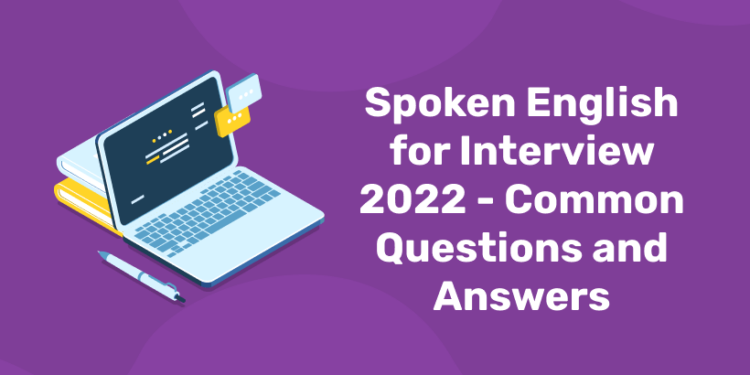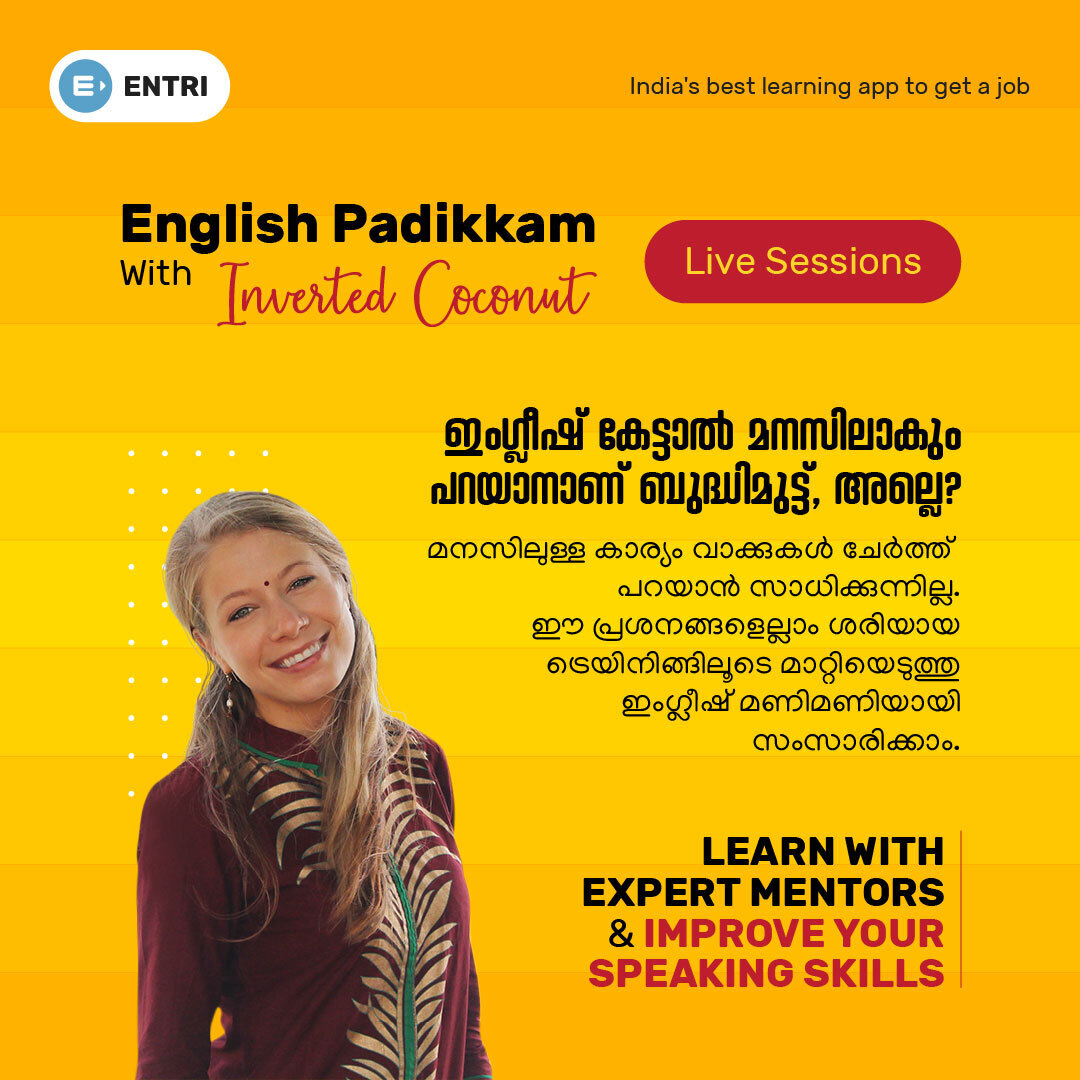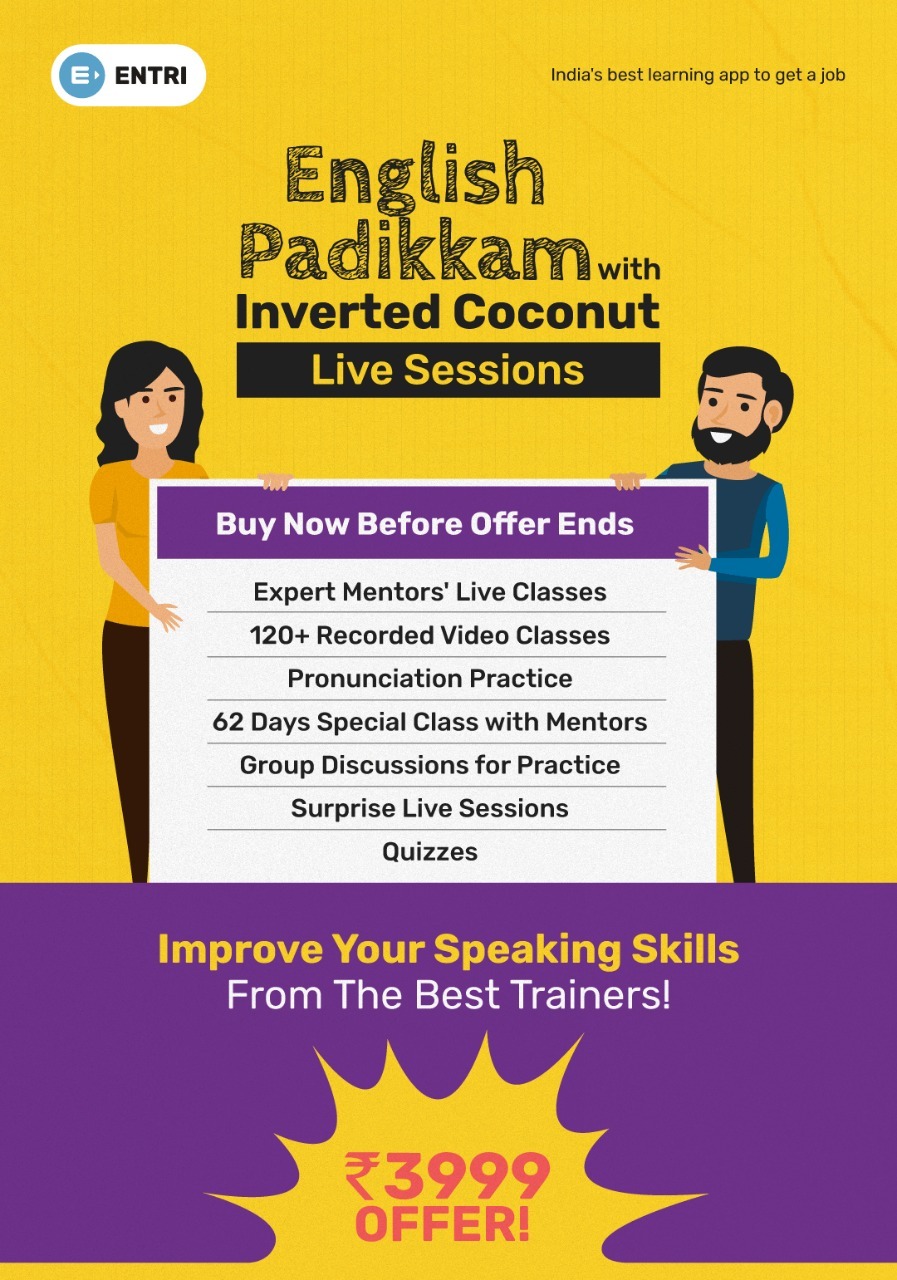Table of Contents
Do you have any job interviews coming up? Are you prepared for that? The soundest way to get ready for an interview is to take the time to check the most common interview questions you will most probably be asked, along with examples of the best answers. Knowing what you’re going to say can destroy a lot of interview stress.
The appearance you make to the interviewer often can overpower your actual credentials. Your composure, attitude, basic social skills, and ability to communicate are considered along with your experience and education.
You and the interviewer must confront in a conversation – a mutual exchange of knowledge and opinions. Only through such a conversation can you both determine if you, the organization, and the job are well matched. Preparation is considered the key to every interview. Every year, hundreds of thousands of people learn English to reach their career goals. For many job seekers, it’s the best decision they ever made.
Yet, if you just knew the language, facing an English-speaking interviewer can be a big challenge. After all, interviews don’t just examine your ability to do a job, they test how well you can come up with interesting answers under stress — which is extremely hard if you’ve got to translate them into a foreign language first.
Great preparation is the secret to doing well in the interviews. Do as much of your review as possible before the English interview conversation takes place. This quite thorough guide will tell you what to expect, what to research, and how to plan the perfect reply to common questions. Follow all of its ways, and you can be confident that you have the best feasible possibility of success.
Training for a telephone interview? Why not talk through a list of questions beforehand with a tutor who specializes in Spoken English?
Tips for a Successful Interview in English
Learning foreign languages, like English, in the job market today is a significant benefit that can make a difference in a job interview. Practice as much as you can, and if required, consider registering for the English course “English Padikkyam with Inverted Coconut” by Aparna in ENTRI Learning App and that will help you become more confident. Here we discussed the useful tips for the interview in English.
- Do Your Research
It is truly important that you acquaint yourself with the industry, company, and role you’re interviewing for. The company’s website is a wonderful place to begin. This will supply some useful talking points and assure you’re ready for a few standard interview questions. Always come trained with an answer to the question: “Why do you like to work here?”
- Practice, Practice, Practice
Practice makes perfect always. Set a mock interview with a friend, or if all else fails, practice your answers to commonly asked questions in front of a mirror. Not only will this be an option to acquire confidence in your spoken English, but it’s also an excellent way to get comfortable talking about your relevant skills and qualifications.
- Be Ready for Interviews
It should go without declaration but do make sure you’re on time for your interview. If you’re depending on public transportation, always have an alternative way in mind in case your bus or train is delayed. Also, remember to obtain an extra copy of your resume and a list of references.
- Know Your Strengths
A hiring manager will like to know what skills you’ll obtain for their company. Read the job specification and make a report of the credentials they are looking for. Think about your appropriate skills and achievements, and be ready to talk about specific examples that highlight your professional strengths and suitability for the position.
- Think About a Weakness You’ve Overcome
There is no secret that interviewers love the question: “What is your biggest weakness?” Determinate something that you’ve stressed in the past, but have since dealt with. Be sure you can list factual ways in which you’ve overcome this former weakness. For instance, maybe you used to work with the organization, but now you make a point of keeping an updated calendar to aid you to stay on top of your tasks and deadlines.
- Dress for Success
When it comes to an interview, it’s important that you make a great first appearance. The best suggestion? Dress for the job you want. You will be more confident when you know you look well-groomed and your clothing is wrinkle-free and professional. It’s also necessary to be comfortable in what you’re wearing on the day; there is nothing more distracting than an interviewee who is fiddling with their clothes or hair.
- Smile is Important
A simple smile can put everyone at comfort and show your interviewer that you’re very excited about the job. Because positivity goes a long way in an interview. Be sure to make eye contact and be mindful of your body language. Above all, avoid the enticement to make negative comments about former employers.
- Say “Thank you”!
Taking the time to say a polite thank you following an interview is a small gesture that can create a big impression. Consider following up with a thank-you email too. This will keep you at the forefront of the hiring manager’s mind and provide you with the perfect opportunity to restate why you would be a great fit for the position.
Want to learn more? Sign Up for ENTRI Learning App to Start Learning English Online Today!
Common Questions for Interviews in English
1: Which of the sentences below is grammatically correct?
If English is not your aboriginal language, you may feel anxious about a job interview that will be in English. You can reduce your worries by practicing for the most common questions that interviews ask in English interviews. In this article, we’ll discuss how to best practice for an interview in English and 10 of the most common interview questions to practice answering in the English language.
The following mentioned are the most commonly asked interview questions that you can be ready to answer in English when you go to your interview:
- Tell me about yourself
This is one of the most common questions asked in an English interview and any other interview also. However, while it may be tempting to reveal everything about yourself, such as where you’re from and your favorite hobbies, it’s essential to keep your answer concentrated on your career and abilities. For example, you could tell the interviewer why you’re curious about the position, how long you’ve been in the industry or field and what your career growth goals are.
- What are your strengths?
“What are your strengths?” is another repeatedly asked question during English interviews. This question is asked to permit the interviewer to get a sense of your abilities and qualifications that are precise to the position. To correctly answer this question, spend some time before the interview researching the position and discovering the qualities required to perform well in that job. Then, tailor your answer to concentrate on strengths that are connected to the job and show you are qualified of adding value to both the position and the company as a whole.
- Tell us about your experience and education
Interviewers ask this question to decide if you have the precise experience and education required to perform the duties of the job you’re involved in. For example, if you’re involved in a copywriting position, the hiring manager will likely want to hear that you have a bachelor’s degree in English, writing, journalism, or a corresponding field. While you don’t require to reveal every bit of education and experience you’ve ever received, be sure to include all pertinent information that sustains your ability to do well in the position.
The following are examples of education and experience to possess in your answer to this question:
- Your degrees
- Any diplomas you’ve acquired, such as those from a polytechnic college
- Any certifications you’ve received that support your ability to thrive in the position
- Previous work experience that connects to the position you’re applying for
- Why are you quitting your current job or why did you quit your last job?
Many employers like to know what made you leave your previous job. This is mostly because they want to make sure you were not terminated due to inappropriate conduct or performance. No matter what the reason, try to deliver an answer that shows your reasoning in a positive manner. For example, rather than saying “I was terminated from my last position,” you could say “I feel I wasn’t capable of effectively utilizing my talents in my previous role.”
- What are your salary expectations?
Another typical question that interviewers ask in nearly any interview is what type of salary you expect. If it’s your first interview, don’t feel obliged to deliver a specific number. Instead, you could ask about the pay range they have set for the position you’re applying for to obtain an idea of if that range meets your expectations. If you’re going to a second interview, spend some time exploring the average salaries for people in the position with equivalent experience and education as you. You can use this number as a starting point when concerning salary during the interview.
- Why do you wish to do this job?
Many interviewers ask applicants why they are curious about the position and/or the company they are interviewing with. When answering this question, it’s essential to concentrate on how your abilities and experience can help the company and position. You can also be concerned about the fact that you want to grow with the company, as many employers want to hire employees who plan to stay with the business for at least 4 years.
- What are your weaknesses?
Interviews often ask candidates what their weaknesses are to get a better sense of if they are conscious of their own restrictions. Knowing your limitations and being ready to examine them can show honesty as well as a willingness to work on these limitations. When answering this question, concentrate on weaknesses that can be solved by executing typical actions. For example, you could say “one of my weaknesses is my anxiety when it comes to public speaking. However, I have found that practicing breathwork and practicing my speech beforehand especially benefits reduce this anxiety.”
- Why should we hire you?
This is one of the most common questions asked by employers and is sought at determining whether a candidate fully comprehends the needs for the position and their ability to meet those needs. A great way to train for this question is to study the job listing and the conditions for the position. Make a list of the capabilities you have that fit these requirements and use these in your answer.
- What are your career goals for the next coming years?
Many employers like to hire employees who will remain with the company for several years. They also like to hire employees who are enterprising and want to grow in their careers. When answering this question, try to include how your plans align with the company’s purpose and goals and how your career goals can eventually benefit the company.
- Do you have any questions for us?
This question is usually asked at the end of an interview to permit aspirants to ask any questions they may have about the position or company. Try to avoid saying “no” and come ready to the interview with a list of questions you have so you have them ready when you’re asked. For example, you could ask about the company’s activity and growth program or whether there is room for growth within the position you’re applying for.
Going for an interview with no clue about the questions you are likely to face is the most destructive thing you can do. It will reveal how unprepared you are and that you aren’t serious. Avoid that by studying these types of common questions. Also, assure to wear decently to maximize your possibilities of getting hired.
Job interviews don’t have to be difficult. Remember first impressions count, think before you talk, show your great English skills and give excellent answers to win that job. You can learn many more tips, words, phrases, etc for helping good English conversations from our ENTRI Learning Platform.













